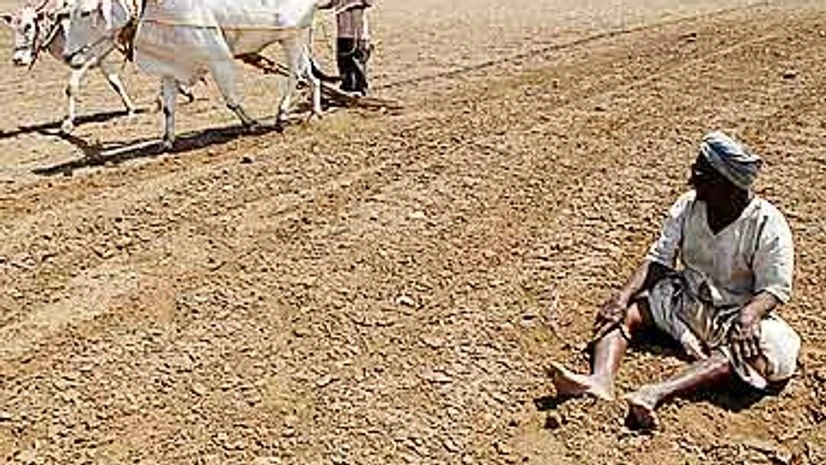Farmer Ram Pal Singh voted for Narendra Modi's promise of "better days" in India's 2014 general election, but he won't be backing the prime minister again even after last week's budget promised more aid to the countryside.
Growing discontent in rural India, home to two-thirds of the country's 1.3 billion people, bodes ill for Modi as he tries to bounce back from a heavy defeat in a state election last year in Bihar and build a support base to keep power in the 2019 general election.
Read our full coverage on Union Budget 2016
In an eyecatching announcement, the budget doubled spending on agriculture and farmers' welfare to $5.3 billion in support of his promise that their incomes would double by 2022.
Yet critics say most of the extra spending is in fact an accounting entry that shifts the cost of an interest subsidy to the agriculture budget that was previously borne by the finance ministry.
"We have received nothing from the government. We don't even recover our costs," said Singh, whose 21-acre (8.5-hectare) plot is big by Indian standards.
Two failed monsoons, and sudden unseasonal rains, have caused widespread crop damage across northern India. Debt-laden farmers like Singh say low state purchase prices and a lack of compensation for crop losses are worsening their plight.
Singh lost $4,500 over the past two years because of severe damage to his wheat and sugarcane crops in the Ghaziabad district of Uttar Pradesh, 30 miles (50 km) east of New Delhi. It has left him with debts of more $10,000, and despair has driven him to think of selling his land.
"We have so much land but we still struggle to survive ... there is only sadness in farming," said Singh, 60, who does not want his grandchildren to work in the fields.
More From This Section
Last month, farmers went on the rampage in neighbouring Haryana state to protest a lack of economic opportunity. Thirty people died and saboteurs cut metropolitan Delhi's main water supply.
"The budget may give you an illusion the government has tried to address the problems faced by farmers," said independent food and trade policy analyst Devinder Sharma. He called instead for a package of "immediate assistance" to stop a spate of suicides by farmers from spreading.
RURAL DISTRESS
Modi last year promised higher compensation for crop losses, but more than a dozen farmers interviewed by Reuters on a field trip said they had received no relief. Many have taken out more loans or sold cattle to tide themselves over.
All but one said they will not support Modi's Bharatiya Janata Party (BJP) in next year's poll in Uttar Pradesh, India's most populous state, home to 200 million people.
In 2014, the party swept Uttar Pradesh, winning 71 of 80 seats to claim the strongest parliamentary mandate in three decades. The budget play seemed designed to improve its standing in rural areas, traditionally a weak spot for the BJP.
"For the first time the agriculture sector has figured prominently in budget, and for the first time we've seen such a sharp rise in allocation for farmers' welfare," Farm Minister Radha Mohan Singh told a news conference.
But Jai Kisan Andolan, a peasants' rights movement, and 35 farming unions counter that the budget offered them no debt relief, and failed to hike either government farm purchase prices or crop-loss compensation rates."Most of what the budget speech projects as big favours to the farming community is actually 'business as usual' with a sleight of hand," the groups said in a statement after the budget.
In addition, the main effort to expand irrigation - adding just 2 percent of net cultivated area of 141 million hectares - is seen as piecemeal. And a new crop insurance scheme is expected to get off to a slow start.
"The government does not have a firm plan to address the rural crisis. They will have to pay a big political price for this," said Satish Misra, a political analyst at the Observer Research Foundation in New Delhi.

)
